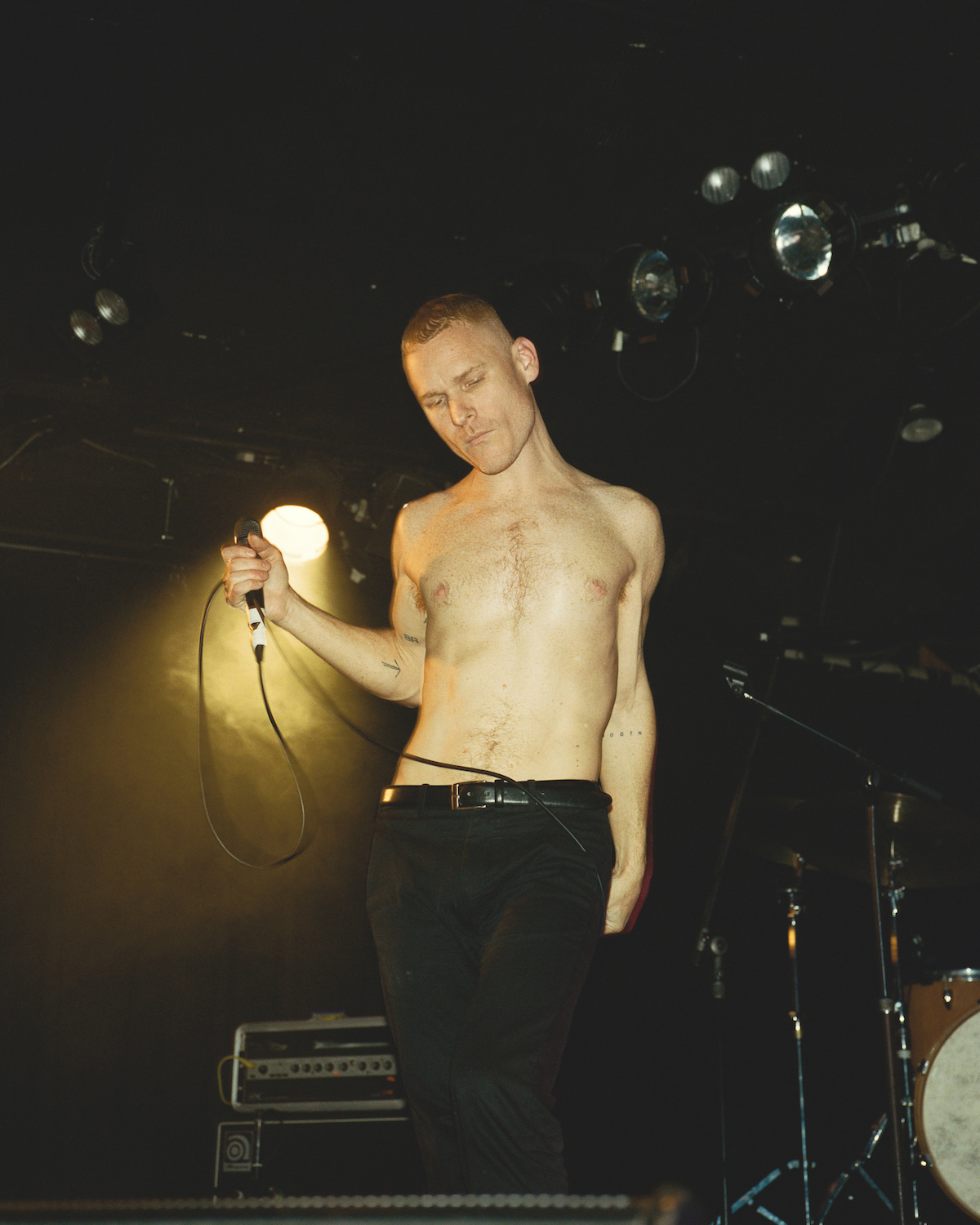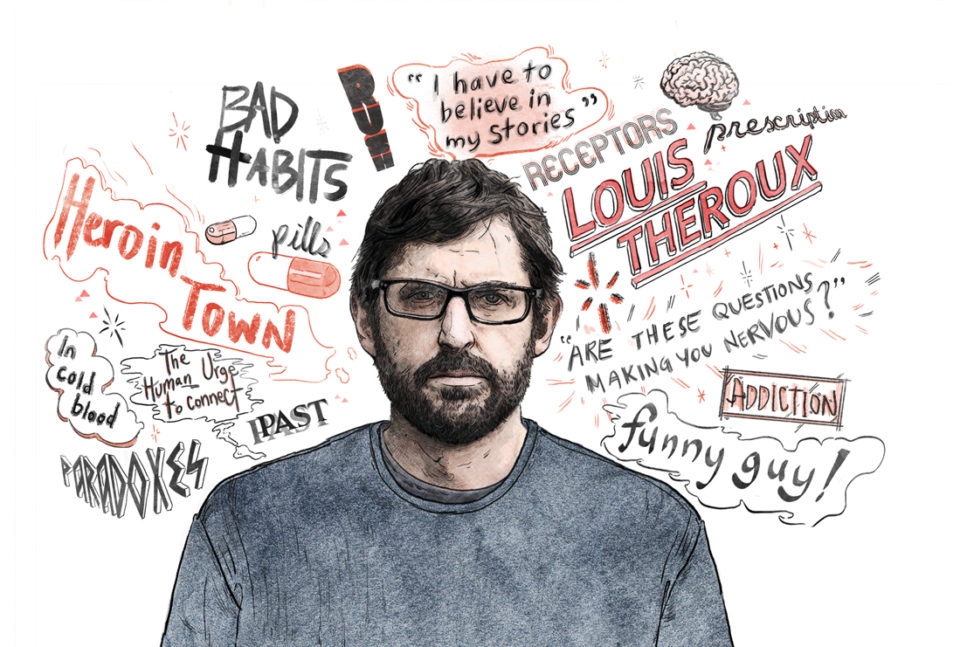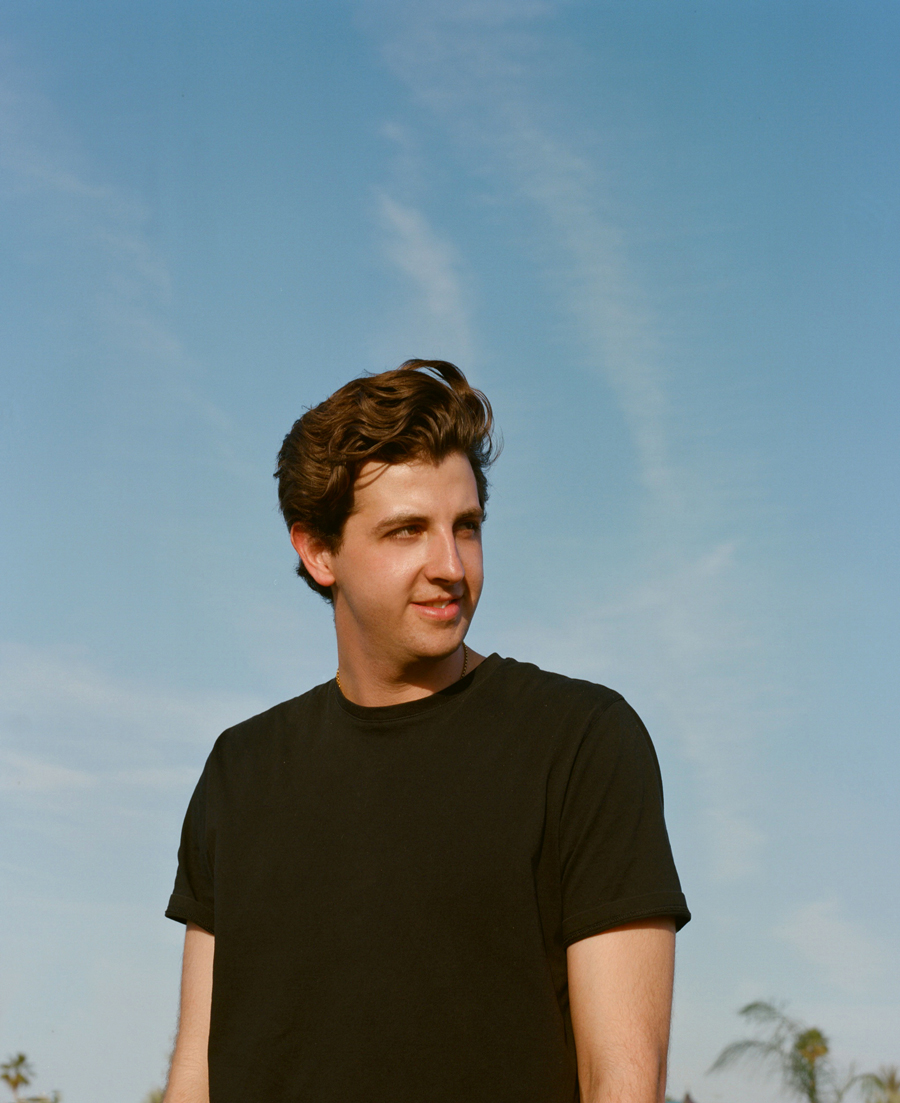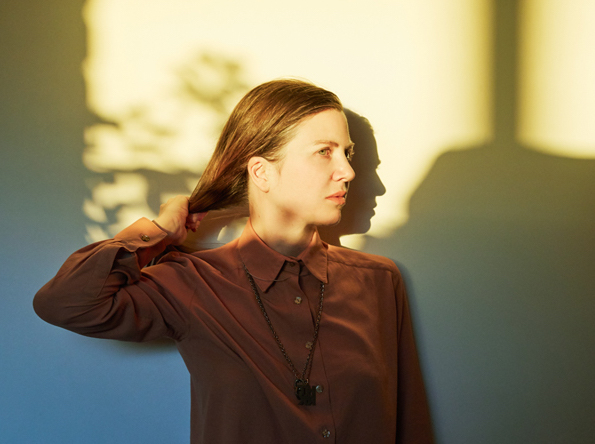The last time I saw Adam Curley was next to a van on Little Eveleigh Street, close to Redfern Station. He was in Sydney to perform with his band, Gold Class. I knew Adam from Melbourne, when he was a writer. I suppose he was a musician too, though I didn’t know it then. Years later we spoke to one another on the phone, and I asked about his childhood and the intersection of art and masculinity. I asked about his life.
I want to start with your writing. How old were you when you began?
I was the kind of kid who was always drawing and writing. But it got to a point when I was mostly writing about music, and I knew I didn’t want to do that anymore.
Music journalism?
Yeah. I mean I was just having a crisis over what I was doing with my life. I used to write all these little books as a kid. And then in high school I got into poetry and started playing guitar. I used to make cassettes and give them to my cousin. Really angsty songs when I was 14. I come from a really practical family so it wasn’t really on the cards that I would go into something artsy or creative. I was always more geared towards putting my talents into something that would get me a job. So I studied journalism because it was the only thing that made sense.
Let’s talk about your short story collection, Men in Places. I found it in an old suitcase in an old house I used to live in long ago. For some reason, I’d never read it. There’s a quiet, almost creeping, darkness to the stories that I found incredibly familiar and confronting. You’ve said before the collection is “… about men. Men away from home, men between ages, men hanging on and men letting go.” You self-published the work in 2013. What is your relationship to that collection, to those themes, now?
I think that conversation with masculinity is still developing. I can’t really remember whether there was any conscious effort to explore masculinity in short stories or if that was just a running theme in what I was writing at the time. At least one of those stories is set in North Queensland, where I grew up.
But I think it’s really hard not to be aware of it: the presence of masculinity. Everyone’s being affected by it all of the time even if they’re not fully conscious of it. When we started the band I was working in a music venue surrounded by men. Most of the customers were men and most of the bands were made up of men too. As a queer person in a band with other men, I felt really conscious of my place, and I wanted to carve out a little queer space within it.
Is that why you started the band? To continue exploring those themes?
Maybe. I know when I was writing short stories and nonfiction it was always about other people. So it made sense to start the band as a way of exploring my own feelings.
It seems like a good way to avoid writer’s block: switching mediums.
I don’t know. I have friends who are like, “I think everyone should have more than one thing going on. Doing art and music and writing make you a more interesting person.” But I don’t really care. I think there’s a lot to be said for focusing on one thing.
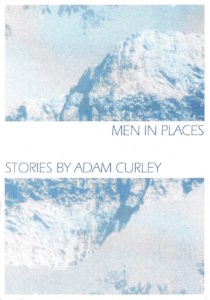
The cover of Adam Curley’s short story collection, ‘Men in Places’.
Let’s talk more about your music. To me, it’s urgent and demands attention. Your latest album Drum asks, but never romanticises, the two questions that seems core to most artistic endeavours: “Can you hear me?” and “Do I belong?” How do you feel now that people are listening? Do you feel comfortable? Do you feel like you belong?
I don’t think you ever really know if anyone is listening. People always come to music, or writing, but especially music with their own ideas. But music is like that. Music doesn’t belong to you. It belongs to someone else.
And what about you? Do you feel you belong?
A lot of what I was reaching for with that album, what you could call “outsiderness”, was reflected in a lot of queer literature I was reading at the time. But I also found those stories in my own life and what I was experiencing in my relationships, what my life was, what it added up to. It seemed easy for me to relate back to the history of queer people. There’s a lot of loneliness there, and a lot of anger, and I think especially right now, for me, or as I get older, it’s easy to connect the dots and see how people are treated and the ways people are ‘othered’ and isolated. I was trying to figure out how to turn this around for myself. Just pulling the thread count to see where it went.
But it’s definitely exhausting. Every show feels physically and personally revealing. In a lot of ways that’s a part of letting go of what people think. People have struggled to grapple with what I’m writing about because it isn’t just overtly political. It isn’t just political statements. I think for a long time people wanted to pin that on me. But that’s not what it is. It is mostly personal. But then that is inherently political, which isn’t a new idea.
When I read your work or listen to your work I get the sense that if you hadn’t made it you would have ceased to function. I don’t mean this in a cliché way. I really feel that. Maybe that’s part of the package deal, you know, with being an artist. Doing what you do.
Yeah, sort of. I try not to let it frustrate me that people think my performance is mostly angry. Or that I am somehow an angry person. Or only an angsty person. Because I really wanted to involve a lot of humour and sex and joy into this album. I really hoped that that translated. But then you don’t know either. I guess that’s part of it, when your voice is part of something and your presence is part of something. I have no idea how I come across on stage. I don’t know how my voice translates. It doesn’t seem to matter what I do with my voice. I’m always going to come across as rage.
That’s interesting. Because when I think of you I think about a very calming person.
I guess another part of it is that it’s been a fucking long couple of years. And I think I’m looking forward to a break, to sitting and writing for a while, to being in Melbourne, just like, fucking around with plants and lamps. Because it’s been a couple of years when I don’t think I’ve been a very calm person. And I think that’s gone into the record. And translated to touring and being on stage. And I don’t think that’s necessarily for worse. I’m up for that. It’s life. But I’m also looking forward to taking a break. I think that’s healthy. And for the band too.
You said the album began with queer literature. What were you reading?
Well, if we’re talking about how the album started I don’t think it started with queer literature. I think it started with just being alone a lot after my relationship ended. But God, what was I reading at the time. Umm. I’m drawing so many blanks. I guess… I don’t know. Isherwood. Baldwin. Giovanni’s Room [by James Baldwin] is about an American who travels overseas to escape the homophobia of his family and his community – and he gets into this incredibly troubled relationship because essentially you can’t run away from yourself and somehow be a person in the world who is capable of making a relationship work.
I think that story gets told over and over again. And I think there’s a reason why this story gets told over and over again. You know, it’s not like an age-old story. Queer identity is only relatively recent, like the past 100 or 150 years. But Giovanni’s Room shows where we’ve come from in the past 70 years. And the fact that a lot of these stories still are being retold tells us there’s a problem.
There’s a theme that runs through queer lives a lot of the time. It’s a little bit harrowing when you start thinking about your own life. You’re just like: fuck. This is largely a story I can relate to. And I know a lot of people who can. And there’s a lot of stuff that doesn’t get spoken about. There’s a lot of silence. And silence inside relationships because everyone is too afraid to make themselves visible or vulnerable because of real fear of violence, of rejection, of abandonment. I don’t know. I don’t really know where to go from here. It’s so tedious having to go through the plebiscite about marriage. I don’t know. If marriage makes some people want to live their lives and makes them happy then that’s cool. But on the other side I have a real problem with marriage being the answer to all these issues that effect queer people. I just feel really resentful about the amount of money that has gone into lobbying for and against same sex marriage. 120 million dollars gone into a postal survey when it could be spent on health services. Or housing. It’s so frustrating.
It’s madness.
That’s the situation we’re in.
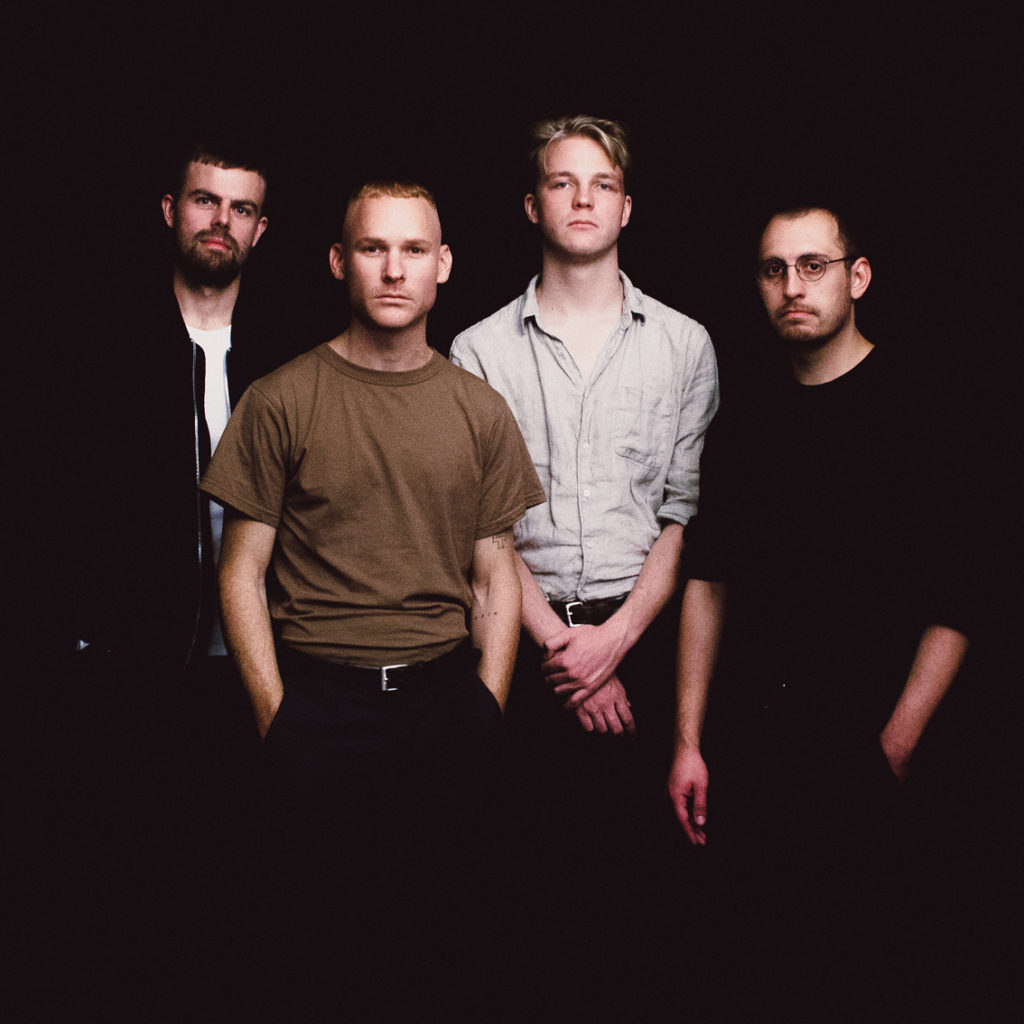
Gold Class. Photography by Paige Clark.
For me, your literature and music hold a mirror to the toxicity and fragility of masculinity in Australia. I believe you grew up in Northern Queensland. How has Northern Queensland impacted your work? How does geography impact your work generally?
I don’t know. Maybe that’s not for me to say. But I do think Australia has a toxic masculinity problem. And that really needs to be, not addressed, but investigated in a real way by people who aren’t just living in the city. I grew up on a farm, on a mango and strawberry farm. I don’t know. There were lots of people who acted like capital M Men. But then I think that was just as prevalent, if not worse, in the suburbs. And you know, I think women in rural areas are very… like my mum probably did as much labouring work as my dad. And my dad’s mum was a nurse in the war and then in the army so you know she was a pretty hard woman as well. And then you get to the suburbs and I think that’s when you see these weird populist ideas of gender spreading. Femininity and masculinity take on these alien forms, and then everyone has to express themselves in this “gender- bought-in-a-shopping mall” kind of way. It’s really strange to me. I don’t know if I’m answering your question.
You’re answering it beautifully.
Okay.
What do you do for money outside of work?
We’ve actually been really lucky because the band has paid for itself. Which is good because we decided pretty early on that we didn’t want to go into debt. I have a bunch of friends who have signed record deals and then found themselves in hundreds of thousands of dollars of debt due to marketing or music videos. We just decided we never wanted that hanging over our heads. And if you’re doing that maybe you’re gambling on making it in some commercially viable way, which was never our intention. So we’ve been lucky. But it’s meant we’ve worked at the same time, which is hard when you’re touring. I’ve been working at Melbourne University in the medical school doing admin, and I work in a little wine bar in North Fitzroy. That’s been it this year.
It’s sort of interesting to think that in 20 years or less automation will be here and no one really knows what that looks like. It seems people can agree there will be less jobs. Apparently kids are being told they would be better off studying philosophy and music and literature rather than, say, accounting. So critical thinking and creativity will be valued because I suppose those skills are harder for robots to grasp. Which seems like incredible news for you. Do you have plans, creative or otherwise, for the future?
Is that true that kids are being told to study music and literature?
I think I read that somewhere.
I mean I can understand philosophy would be valued because philosophy is going to be really important when automation comes. There’s going to be some pretty big questions.
Okay, let me rephrase the question. I don’t think the issue with automation is necessarily people not having work. Hopefully, there’ll be some sort of basic universal income or something will fill the void. I think the more interesting question is⎯
I think it’s interesting you think something will fill the void. I feel less and less sure that anyone actually cares if something fills the void. I’m less and less convinced that the politicians and the 1% think it’s important for people not to be homeless or unemployed.
Maybe what I meant was: what are people going to do for purpose when automation arrives? If you take people’s jobs away they’re are going to need things to do: music, literature, art might become more crucial than ever. I think that puts people like you in an interesting spot.
I think that’s an optimistic view of it.
Yeah… I know.
If you look at towns where unemployment is really high you don’t see people picking up instruments. You see people doing lots of drugs. And getting involved in violent crime. Which is sad, but often there isn’t any infrastructure around the arts in those places. But, you know, it’s a nice thought that when the robots take over maybe people will want to be creative again.
It’s called a renaissance, baby.
I mean I hope so. But I’m tired. We’re going to have a big break. And I have no idea just how long it’s going to be but this will definitely be our last shows for a pretty long time. You know when you’re exhausted by something and you can’t get your head around how you’re going to get back into it? Or what it will look like? It’s quite possible that when we return the band will look like something completely different. We played this show in Brisbane and people came up to us and were like, “You’ve gotta keep going.” “Make sure you come back to it.” And, “You guys are doing your own thing and it’s really important.” And part of me says, “I want to” but another part of me is like, “It’s just fucking hard.” I want to do other stuff. I want to return to nonfiction. I want to experience other things.
And all you’re hearing, basically, is people saying, “Don’t abandon me.”
Yeah. I mean hopefully nobody feels like that. Thank God, there are a billion other bands out there.
Gold Class perform with Mere Women at the Oxford Art Factory, 8pm Saturday 18 November. Details and tickets here.



